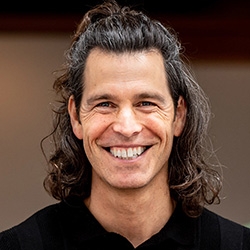
NVC Resources on Requests
-
When you attempt to make a request what limiting beliefs come up? See if you recognize any from this list. Then compassionately observe your body sensations, impulses, feelings, needs, memories, energy, and images. In making the request ensure your request is connected to your needs, is doable, what you want, and not attached to them saying yes.
-
Try this four step exercise for making connection requests to support understanding, and to learn what effect your words had on the listener. In this exercise you'll choose a situation where you have clarity about what outcome will really work for you (your solution request), but where you imagine your desired outcome may not work for the other person, and/or are not sure there is sufficient connection for mutual trust.
-
For effective dialogue clarify your needs, boundaries, and requests beforehand. Setting boundaries is telling someone what you're going to do in order to meet or protect needs for yourself or others. Whereas with requests, even if you have preferences, you still hold open curiosity about strategies to collaborate with others in meeting needs. Read on for more.
-
Trainer Tip: Mary offers 3 foundational tips for making requests: positivity, specificity and doability.
-
Yoram Mosenzon suggests that when we make positive language requests, we tell people what we want. We give them an image of what would make life more wonderful. What we usually do is tell people what we do not want. This tends to create resistance.
-
Trainer Tip: Knowing the difference between what we need and what we want someone else to do about that need can have a profound impact on our relationships and our happiness.
-
If someone asks you to love them as is, try wondering what contributes to their need for acceptance. Loving someone and empathizing with them, doesn't mean you can't make requests for change. Recall that your requests are about your needs, not about them. Understand that requests may not be met due to lack of resources or skills, even if the desire is there. Clarify how important the request is to you and how negotiation can look.
-
It may be challenging to hear or make requests when you feel shame regarding anyone's feelings and needs. Without support, shame could be debilitating, so you may feel resistant and become defensive, hear threat, or criticize others. Instead, be with people who allow space for vulnerability. Find ways to celebrate, negotiate, be mindful, accepting, and creative.
-
Many believe it's only a true NVC request when we can ask for what we need without urgency or insistence. But what if we're the target of oppression and hate in a world with systemic inequality? Is it still nonviolence to abdicate power by allowing the person enacting harm to be the one to decide whether harm continues? The intensity of the need, degree of harm, and how chronically unmet the need is, are factors to guide us for when to apply force and demand within NVC. We can be attached to outcome, without being attached to strategy.
-
Before you make a request you can connect fully to a time when your need was met. Notice how your request feels and sounds different from this place of aliveness. Excitement about meeting a need implies confidence and trust about moving forward together. Offer an invitation to find strategies that work for both of you.











